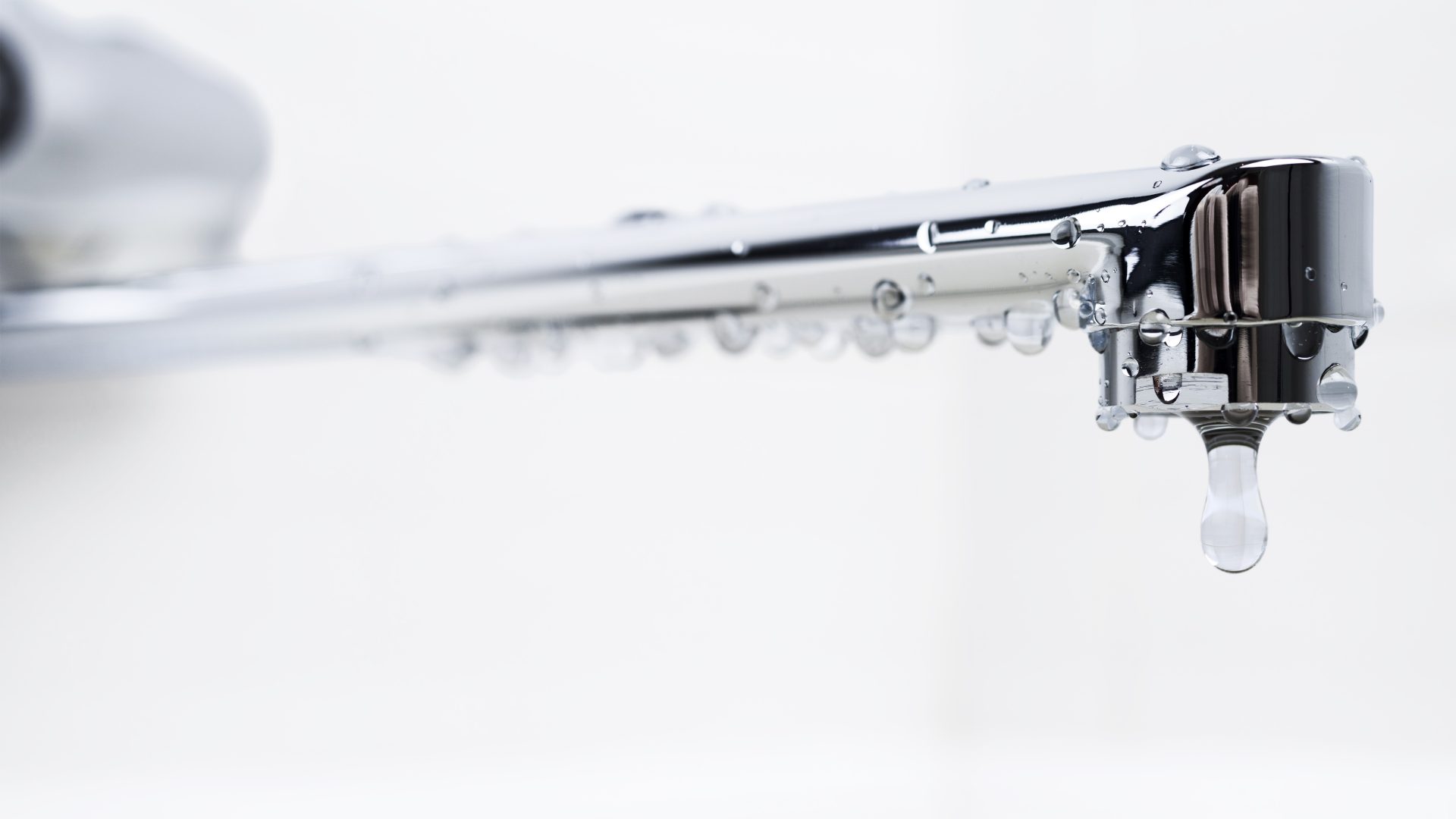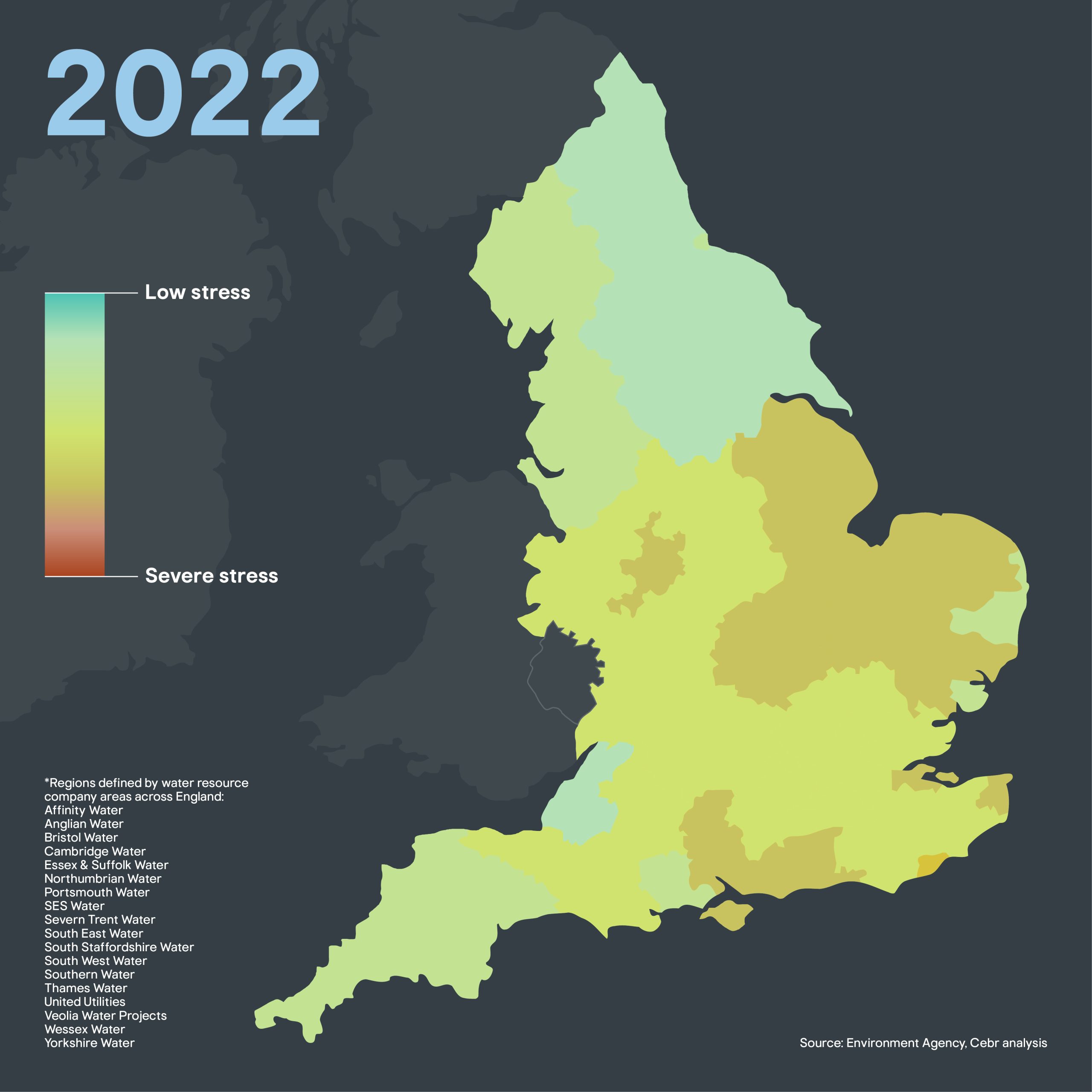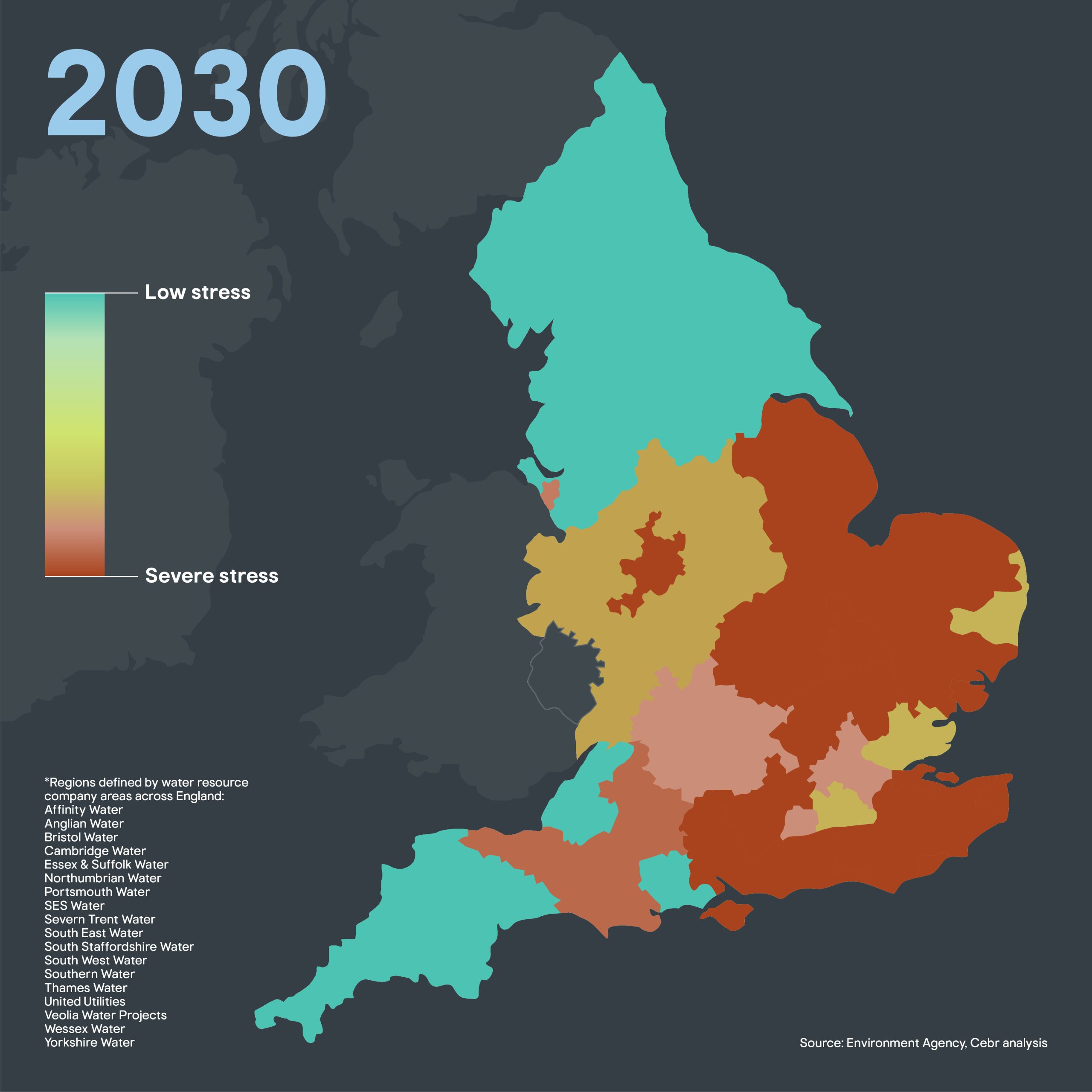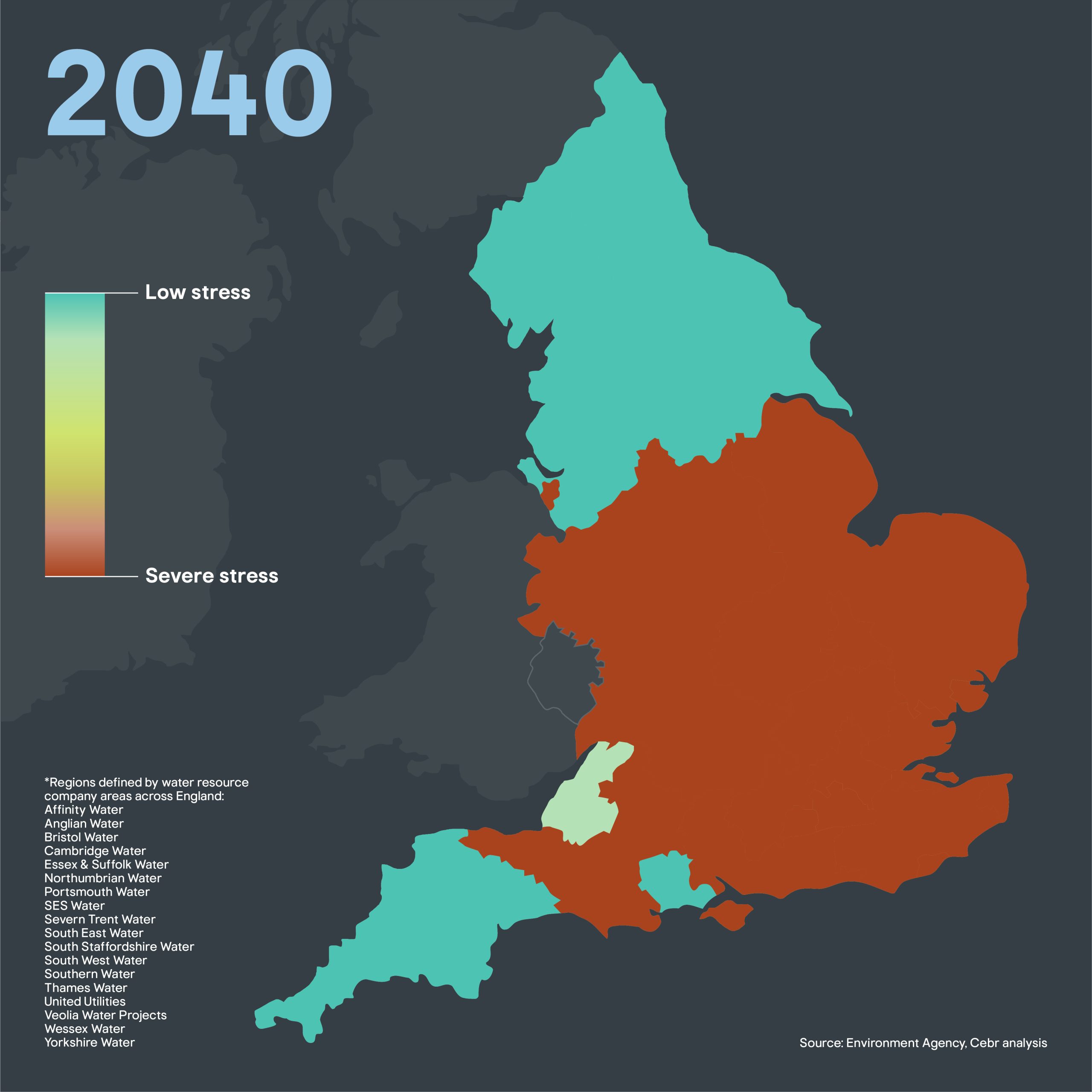By 2030, seven regions in England are set to be severely water stressed, according to new research by Kingfisher, owner of B&Q and Screwfix, in partnership with economics consultancy Cebr.
The West Midlands, London, parts of the South West, the East Midlands, the East of England, and the South East are all regions expected to be severely impacted, unless there are developments in water resilience in the near future. Regions in the South of England are expected to be the worst affected. By comparison, the North West, the North East and Yorkshire & the Humber will be less vulnerable to severe water stress.
By 2040, the year the Environment Agency has warned that England risks running short of water, the number of seriously water stressed regions is on course to rise to 12, out of a total of 17. Currently, nowhere in England is considered to be water stressed. Water stress occurs when the demand for water exceeds the available local supply and is being exacerbated by the effects of climate change and population growth.
Daily water consumption in homes across England has risen in recent years, with each person using 144 litres in 2021/22, compared to 141 litres in 2017/18. To help close the looming gap between supply and demand, the Government is targeting a reduction to 122 litres per person per day by 2038, falling to 110 litres by 2050.
A separate survey by Kingfisher of 3,000 UK adults reveals that Brits are significantly underestimating their daily water usage, with two thirds (66%) estimating that they use less than 140 litres a day while over a quarter (29%) did not feel able to guess. On average, people thought they used just 57 litres of water each day.
Over half of Brits (54%) admit to leaving the tap on while brushing their teeth, rising to 70% in London, one of the regions most likely to face future water stress. A running tap wastes approximately six litres per minute. Four in ten Brits (41%) say that they run their dishwasher when it is not fully loaded, including six in ten Londoners (61%).
40% of Brits say they shower for eight minutes or longer with only one in four (25%) showering for under five minutes. The average shower head uses 12 litres of water per minute, meaning that an eight-minute shower will use up to 96 litres of water while five minutes will use around 60 litres. More than 40% of water in the home is used for showers, baths and handwashing with toilets using around 30%.
Despite the majority of people underestimating how much water they use in their home, almost four out of five (79%) Brits say that reducing the amount of water they use is important to them. Three in four (76%) believe saving water is more important now than it was a decade ago. However, over half (53%) say they wish they had more information on how to save water.
Thierry Garnier, CEO of Kingfisher, said:
“Across Europe, we are experiencing more extreme weather, leading to increasing water scarcity in many regions. As the impact of climate change becomes more apparent, measures such as hose pipe bans are set to become much more common, with increasingly strong measures needed to reduce demand.
“We all have a role to play in conserving water. Making simple and affordable changes in our homes can have a huge impact, from installing water butts to collect rainwater for the garden to fitting tap aerators or low-flow shower heads. Governments can also help by encouraging the rollout of smart water meters and supporting the public to be more informed about water. By taking action now, we can put our water usage on a more sustainable path and safeguard this essential resource for the future.”






